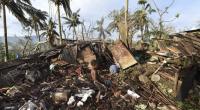 To overcome the challenges of early learning for Rohingya children, the Lego Foundation has joined hands with the much-loved children’s TV show, Sesame Street, to bring play-based learning and skill development to refugee camps in Bangladesh.
To overcome the challenges of early learning for Rohingya children, the Lego Foundation has joined hands with the much-loved children’s TV show, Sesame Street, to bring play-based learning and skill development to refugee camps in Bangladesh.
In a first of its kind effort, the Lego Foundation this week announced a grant of 100 million US dollars to Sesame Workshop, the makers of the show Sesame Street, to create play-based learning programs for children up to age 6.
“By providing play-based learning to children in crisis, we can help mitigate the detrimental, long term effects of displacement and trauma,” says John Goodwin, CEO of the LEGO Foundation.
The Sesame Workshop will work in partnership with BRAC, an international development organisation based in Bangladesh, the International Rescue Committee and New York University’s Global TIES for Children.
The aim is to teach basics like the alphabet and numbers, but also emphasise social and emotional development to counter the effects of stress and suffering. It will be offered both to displaced children and to some of their potential friends in host communities.
Harnessing the power of the Sesame Street Muppets, the program will create videos focused on play to be shared through family-friendly mobile and pop-up viewings in refugee and host communities.
Global Sesame content will also be used—including video content from Sisimpur, the Bangladeshi version of Sesame Street.
Much of the new content will use animated and nonverbal formats, so that it can be used to address the needs of displaced children no matter where they live or what language they speak.
“Play is essential for a child’s healthy development and fosters the natural curiosity to learn through engaging interactions with caring adults,” says Sherrie Westin, President of Global Impact and Philanthropy at Sesame Workshop.
According to UN reports, today, 68.5 million people are displaced worldwide. Among them are 25 million refugees, half of whom are children. As refugees experience displacement for an average of 10 years, millions of children are spending a significant part of their childhoods without access to adequate early childhood development opportunities.
Also, less than 3% of the global humanitarian aid budget is currently dedicated to education with only a small fraction benefitting young children, despite clear evidence that early childhood interventions have immediate and long-term benefits for both children and their communities.
Bangladesh’s Cox’s Bazar hosts more than 700,000 Rohingya refugees but as they are confined to the camps the children may not have access to state-run schools.
“We hope to inspire other funders, humanitarian actors, world leaders and governments to act and urgently prioritise support for play-based early childhood development for children in humanitarian crises—a vastly overlooked but vital component in the progress of humanitarian aid,” says Thomas Kirk Kristiansen, Chairman of the LEGO Foundation Board.


